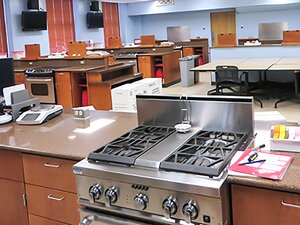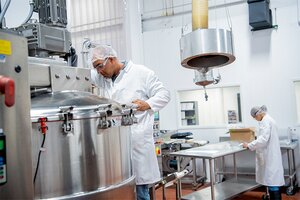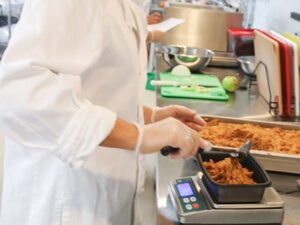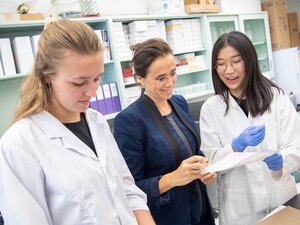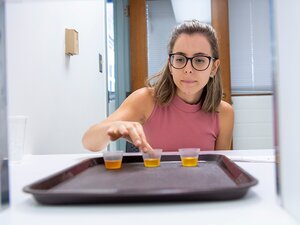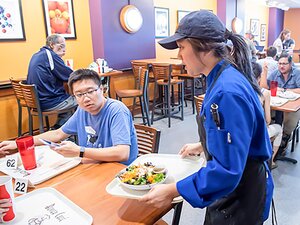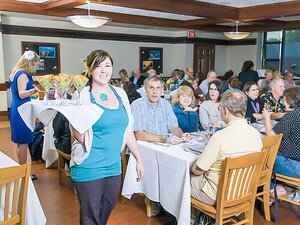Food Labs
Food Science and Human Nutrition students create and demonstrate in our state-of-the-art Food Labs. Doris Kelley Christopher, founder of The Pampered Chef, Ltd., sponsored the Food Labs’ 2008 renovation, which included installing workstation video cameras and synced screens, increasing lab capacity, improving food safety aspects of the lab, and adding accessible workstations.
The Food Science and Human Nutrition Food Labs are located on the third floor of Bevier Hall.
